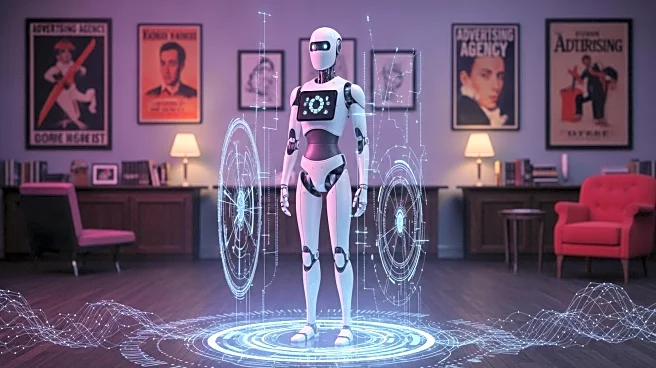What's Happening?
Media companies such as Meta, TikTok, X, Spotify, and Pinterest are enhancing their artificial intelligence (AI) capabilities to streamline the creation and delivery of advertisements on their platforms. Meta, in particular, has positioned itself as a 'one-stop shop' for advertisers, aiming to automate the entire advertising process, including ad creation and targeting, by the end of the year. This development has led to a rise in Meta's stock price, while shares of traditional advertising agencies like Publicis, Omnicom, IPG, and WPP have seen a decline. The shift towards AI-driven advertising raises questions about the future role of media and creative agencies in the advertising ecosystem.
Why It's Important?
The move towards AI-driven advertising by major media platforms could significantly impact the advertising industry. Traditional agencies may face challenges in maintaining their relevance and market share as platforms like Meta offer more automated and potentially cost-effective solutions. This shift could lead to a reevaluation of business models and strategies within the advertising sector. Companies that adapt to these changes by integrating AI into their operations may gain a competitive edge, while those that do not may struggle to keep up. The broader implications for the industry include potential job displacement and the need for new skill sets focused on AI and data analytics.
What's Next?
As media platforms continue to develop their AI capabilities, traditional advertising agencies may need to innovate and find new ways to add value to their clients. This could involve focusing on creative strategy, brand storytelling, and other areas where human insight and creativity are crucial. Agencies might also explore partnerships with tech companies to enhance their AI capabilities. The industry will likely see increased competition and collaboration between tech-driven platforms and traditional agencies as they navigate this evolving landscape.









